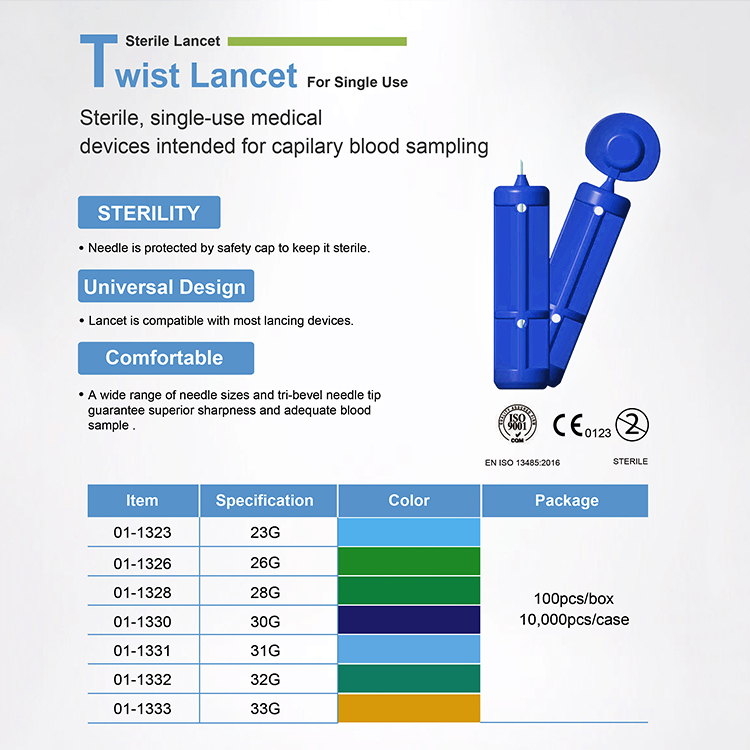Dec . 11, 2024 23:49 Back to list
best blood test for typhoid fever manufacturer
The Best Blood Tests for Typhoid Fever A Comprehensive Guide
Typhoid fever, a systemic infection caused by the bacterium *Salmonella enterica* serotype Typhi, remains a significant public health concern, especially in developing countries. Early diagnosis is crucial for effective treatment and to prevent severe complications. Blood tests play a vital role in the accurate diagnosis of this disease, but with various options available, identifying the best test can be challenging. This article explores the leading blood tests for typhoid fever and highlights the key manufacturers involved in this critical area of medical diagnostics.
Understanding Typhoid Fever
Typhoid fever is typically transmitted through contaminated food and water. Symptoms often include prolonged fever, weakness, abdominal pain, headache, and loss of appetite. If left untreated, the infection can lead to severe complications, including intestinal bleeding and perforation. Therefore, timely diagnosis and treatment are essential.
Overview of Blood Tests for Typhoid Fever
1. Blood Cultures This is considered the gold standard for diagnosing typhoid fever. Blood cultures involve taking a sample of blood and attempting to grow the *Salmonella Typhi* bacteria. It is highly sensitive, especially in the first week of illness. However, it requires specialized laboratory facilities and can take several days for results.
2. Serological Tests These tests detect antibodies produced in response to the infection. The widely used tests include - Widal Test Measures the presence of antibodies against *Salmonella* antigens in the blood. While it is accessible and inexpensive, its specificity and sensitivity vary, leading to potential false positives and negatives. - Typhidot Test This test detects IgM antibodies against *Salmonella Typhi* and offers quicker results than blood culture, typically within a few hours. It is simpler to perform and interpret, making it a popular choice in clinical settings.
3. PCR Tests Polymerase Chain Reaction (PCR) techniques can detect the DNA of *Salmonella Typhi* in blood samples. This method is highly specific and sensitive but requires sophisticated laboratory infrastructure.
Choosing the Best Test
best blood test for typhoid fever manufacturer

The choice of the best blood test for diagnosing typhoid fever depends on several factors, including the clinical setting, availability of resources, and the patient's condition. In settings where laboratory facilities are limited, rapid serological tests like the Widal or Typhidot tests may be preferred for their speed and ease of use. However, in well-equipped laboratories, blood cultures remain the most definitive method for diagnosis.
Manufacturers of Typhoid Fever Diagnostic Tests
Several manufacturers specialize in developing diagnostic tests for typhoid fever. Some of the key players in this field include
- BD (Becton Dickinson) A leader in medical technology, BD offers blood culture systems that are widely used in hospitals for the detection of bacteremia, including *Salmonella Typhi*.
- Thermo Fisher Scientific Known for its PCR technology, Thermo Fisher provides molecular diagnostics that can accurately identify typhoid fever in a timely manner.
- Abbott Laboratories Abbott produces a range of serological tests, including the Typhidot test, which is favored for its quick turnaround time and reliability.
- Meridian Bioscience They focus on immunoassays and have developed rapid tests for the detection of *Salmonella Typhi* antibodies, making them accessible for resource-limited settings.
Conclusion
In conclusion, the diagnosis of typhoid fever relies heavily on blood tests, with each option offering unique advantages and limitations. While blood cultures are the gold standard, serological tests like the Widal and Typhidot tests, as well as PCR methods, provide critical alternatives depending on the availability of resources and the clinical context. Manufacturers such as BD, Thermo Fisher, Abbott, and Meridian play essential roles in developing these diagnostic tools, paving the way for more accurate and timely diagnoses. As global efforts to combat infectious diseases continue, enhancing the capabilities of diagnostic tests for typhoid fever remains a crucial priority.
-
Reliable Early Pregnancy Test Kit Supplier - Multi Plastic Cassette Options
NewsJul.30,2025
-
Transferrin Rapid Test Cassette – Reliable Tumor Marker Detection
NewsJul.29,2025
-
Accurate Follicle Stimulating Hormone Test Kit | Rapid Reliable Results
NewsJul.29,2025
-
High Accuracy LH Ovulation Test Kit - Digital Results & Wholesale Options
NewsJul.29,2025
-
HbsAg Blood Rapid Test Kit for Fast & Accurate Hepatitis B Detection
NewsJul.28,2025
-
Sterile Urine Cup for Safe & Easy Collection | High-Quality Specimen Cups
NewsJul.28,2025

